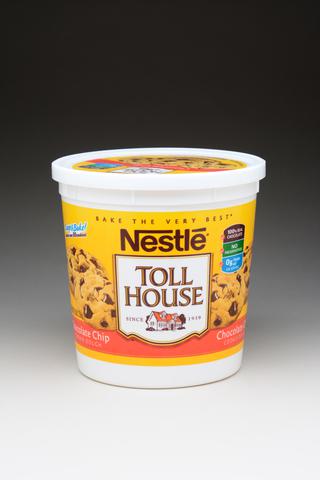Public health officials from several states and the Centers for Disease Control and Prevention (CDC) began investigating an E. coli O157:H7 outbreak with a common source in March of 2009. By June 18, the CDC had reported 69 E. coli cases in 29 states with a common source, and on June 19, 2009 Nestle recalled its Nestle Toll House prepackaged refrigerated cookie and brownie dough products for possible E. coli O157:H7 contamination.

The FDA advised consumers to throw away any prepackaged, refrigerated Nestle Toll House cookie dough products. Cooking the dough was not recommended to eliminate risk of contamination, since the E. coli bacteria could be transferred from the dough to hands and other cooking surfaces.
Nestle USA initiated a voluntary recall of many uncooked cookie dough products on June 19, 2009. The Nestle press release contained a list of recalled products, with production codes. The company also closed half of its Danville, Virginia, plant - the half of the plant that makes Nestle Toll House refrigerated cookie dough. According to a company spokeswoman, the Danville plant was responsible for the majority of Nestle Toll House refrigerated cookie dough production.
On June 22, the Marler Clark law firm filed the first E. coli lawsuit against Nestle USA in connection with the Nestle Toll House refrigerated cookie dough E. coli outbreak on behalf of a young California woman. The next day, the E. coli lawyers filed a second lawsuit against Nestle USA on behalf of a Colorado child who became ill with an E. coli infection and hemolytic uremic syndrome (HUS), a serious complication of E. coli infection that can lead to kidney failure, after eating Nestle Toll House cookie dough in April. The firm filed a third cookie dough E. coli lawsuit against Nestle USA on behalf of a Washington victim on June 24. The law firm has resolved over a dozen claims on behalf of victims, including several HUS cases. Marler Clark client Linda Rivera, an HUS victim of Nestle cookie dough in the news.
Later, on January 13, 2010, Nestle USA announced that two samples of its Toll House refrigerated cookie dough made at a Virginia factory tested positive for E. coli bacteria despite rigorous safety measures put in place after a recall of the product. They also announced that no dough had left the factory so there was no need for a recall.
In the end, Marler Clark represented 24 individuals who became ill with E. coli infections during the Nestle Toll House cookie dough E. coli outbreak. Their claims were successfully resolved.